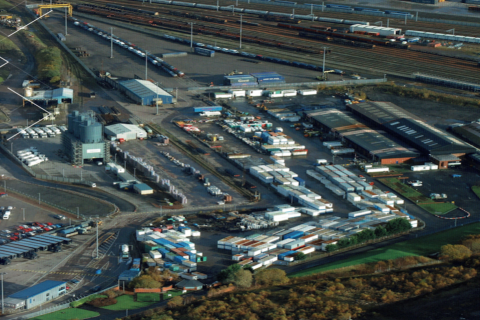UK Strikes outlook stormy with action called for March and April

The long running dispute in the British railway industry has flared up again with the announcement of a fresh round of strikes. The trades union RMT (Rail, Maritime and Transport) has announced four days of action for March and April. The strikes follow the established pattern of alternate days of action, which is designed to lengthen the period of disruption.
In a further escalation, the RMT has called for an overtime and rest day working ban. Restricting rest days – normally Sundays – will severely curtail services on weekends. The strike will affect almost all passenger train operators in England, with implications for those operators who also provide cross-border traffic from Engalnd to destinations in Wales and Scotland. Staff at the infrastructure agency Network Rail are also involved. Although freight operators are not directly involved, their services will be undermined by the withdrawal of labour at Network Rail.
The RMT union which represents 40,000 workers across Network Rail and 14 passenger train operators, rejected offers from employers recently. They say the latest deal did not meet the needs of its members on pay, job security or working conditions. Against a far more widespread landscape of major industrial disputes in the UK, the railway industry will see staff on the picket lines in March and April – taking the current dispute in to a tenth month of action by the trades unions. The RMT says members will down tools on 16, 18 and 30 March, and on 1 April. That does leave around four weeks to find a resolution and talks will continue. However there are gloomy prospects that this dispute will be solved any quicker than those in other critical sectors, particularly health and education.
Thousands of lowest paid members miss out
The Rail Delivery Group, which represents the employers in the rail industry in Britain, has been forthright in its condemnation of the RMT announcement. “This latest round of strikes is totally unjustified”, said a spokesman. “[This] will be an inconvenience to our customers, and cost our people more money at a time they can least afford it. The RMT leadership’s decision not to put the deal out to a referendum means that thousands of their lowest paid members have been denied a chance to have a say on an offer which would give them a pay increase of over 13 per cent.”
In response, Mick Lynch, the RMT general secretary said rail employers are not being given a fresh mandate by the government to offer his members a new deal on pay, conditions and job security. “Our members will now take sustained and targeted industrial action over the next few months”, he said. “The government can settle this dispute easily by unshackling the rail companies. However, its stubborn refusal to do so will now mean more strike action across the railway network and a very disruptive overtime ban.”
Very effective strike tactics
Unless there is a significant breakthrough in the long running dispute, strike action will take place on Thursday and Saturday, 16 and 18 March, and on Thursday 30 March and Saturday 1 April. Union members at fourteen passenger train operators in England will be involved. This follows the established pattern of “one on, one off” days of withdrawn labour. This tactic has proved very effective at disrupting the network for a prolonged period around the strike days. Network Rail staff, who include signalling and safety posts, will strike on Thursday and Friday 16 and 17 March.

Significantly, an overtime ban will be in place too, involving members who work for Network Rail. That means RMT members are less likely to be available for rest day working, upon which the British railway industry relies, particularly for weekend passenger services. The overtime, rest day working ban, and non-rostered Sunday working action covers a much more extensive series of weekly stoppages throughout March and April (17-23 March; 31 March until 6 April; and 14 until 20 April). The action at Network Rail will be split between staff in maintenance and operations roles.
RMT reneged say RDG
There is an embittered tone coming form the trades unions. Leader of the RMT, Mick Lynch, said government ministers, who he believes are blocking the railway employers from resolving the dispute to the unions’ satisfaction “cannot continue to sit on their hands hoping this dispute will go away as our members are fully prepared to fight tooth and nail for a negotiated settlement in the months ahead.”
For their part, the employers representatives, the Rail Delivery Group, claims that the RMT agreed from the outset that the industry needed modernisation and understood that was how a pay rise could be funded. “After many months of extensive talks and meeting key demands on Driver Only Operation [a key area of dispute], pay and job security, the leadership have now reneged on that position and say they not accept any reforms”, said their reply statement. “They know that no employer who has lost 20 per cent of its revenue could accept those terms. “The vital changes will not go away because the RMT refuses to engage with them. We remain open to having further talks, but urge the leadership to put the deal they negotiated with us to a democratic vote and allow their members – our people – a say their own future.”
Also read:
- UK February rail strikes in effect, what’s there for freight?
- UK strike update: more to come or solution in sight?
- A week of talks to settle strike disputes in the UK
You just read one of our premium articles free of charge
Want full access? Take advantage of our exclusive offer





